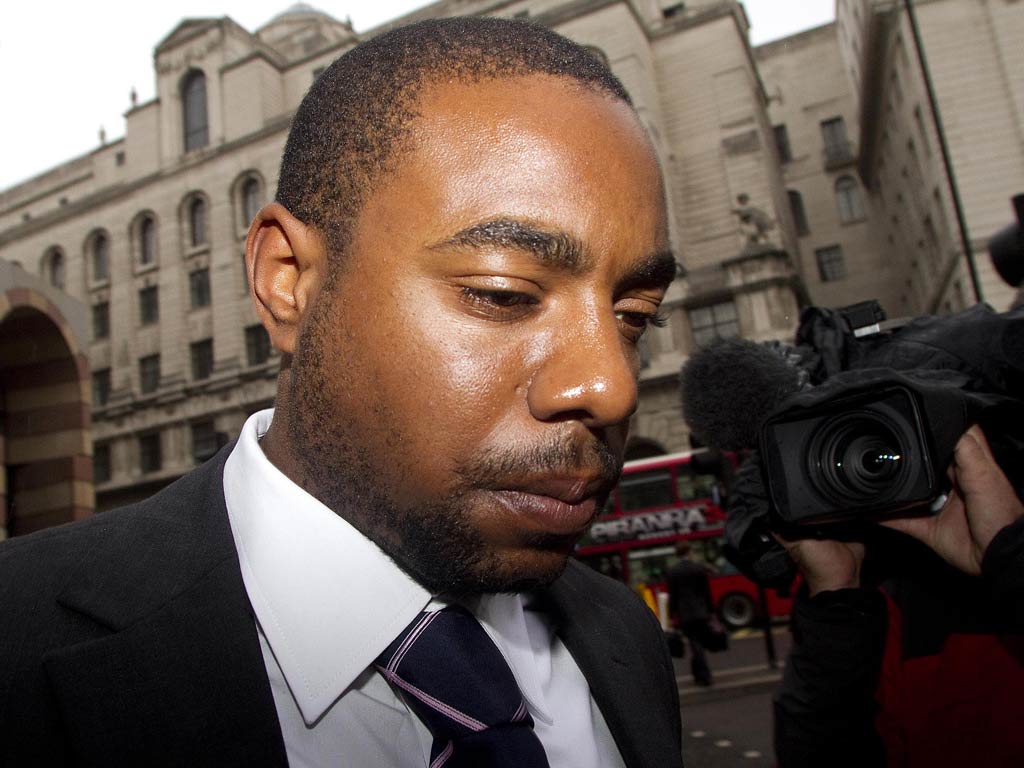Stephen Brenkley: England has its cheats too. That's the lesson of this landmark case

Your support helps us to tell the story
From reproductive rights to climate change to Big Tech, The Independent is on the ground when the story is developing. Whether it's investigating the financials of Elon Musk's pro-Trump PAC or producing our latest documentary, 'The A Word', which shines a light on the American women fighting for reproductive rights, we know how important it is to parse out the facts from the messaging.
At such a critical moment in US history, we need reporters on the ground. Your donation allows us to keep sending journalists to speak to both sides of the story.
The Independent is trusted by Americans across the entire political spectrum. And unlike many other quality news outlets, we choose not to lock Americans out of our reporting and analysis with paywalls. We believe quality journalism should be available to everyone, paid for by those who can afford it.
Your support makes all the difference.Until the dramatic turn of events at the Old Bailey yesterday, match-rigging was something that was perpetrated by people from other countries. Perception and reality changed as soon as Mervyn Westfield admitted taking bribes to bowl badly.
His plea of guilty made him the first English cricketer to be convicted of such a crime.
Westfield, 23, will be sentenced on 10 February and faces a prison sentence. He was accused of accepting £6,000 in return for leaking a guaranteed number of runs in two NatWest Pro40 matches for Essex – against Durham and Somerset – in September 2009. Two months ago, three Pakistani cricketers were jailed after being found guilty of cheating in a Test at Lord's in return for money. Westfield's offences were committed a year before Salman Butt, Mohammad Asif and Mohammad Amir were involved in a plot to bowl no-balls at Lord's but the trial was delayed by legal wrangling.
It is a salutary lesson for English sport. The world of county cricket is not cosy – England would not have become the best Test team in the world if it were – but it has always given the impression of being a bastion of continuity and solidity in a rapidly changing world.
When the Westfield case first broke, it was evidence that the domestic professional game was a target. A Pro40 game at the fag end of a long season might not stir many hackles but many of these matches are televised.
They attract betting, not least in the Indian subcontinent. There are many aspects to bet on, such as the number of runs scored in an over, which is what Westfield's case hinged on.
He took the money after agreeing to ensure that the first over of his spell in the match at Chester-le-Street would go for 12 runs. In the event it went for 10. It is to cricket's credit that it acted quickly. Since Westfield was accused, the Professional Cricketers' Association has increased its educational programmes for young cricketers. These explain not just what is wrong but the sort of approaches that might be made. They also stress the need for players to report any untoward activity. That is what happened in the Westfield case. It emerged at a pre-trial hearing that he had told his team-mate Tony Palladino about the fix and shown him the money. Palladino reported the matter and was due to be a prosecution witness until Westfield changed his plea yesterday.
Granting him bail, the judge said he could hold out no promises for Westfield when he returns to court. The likelihood is that illegal activity in county cricket is not widespread but when a young player is handed £6,000 for a dodgy over, nobody can be sure.
Join our commenting forum
Join thought-provoking conversations, follow other Independent readers and see their replies
Comments